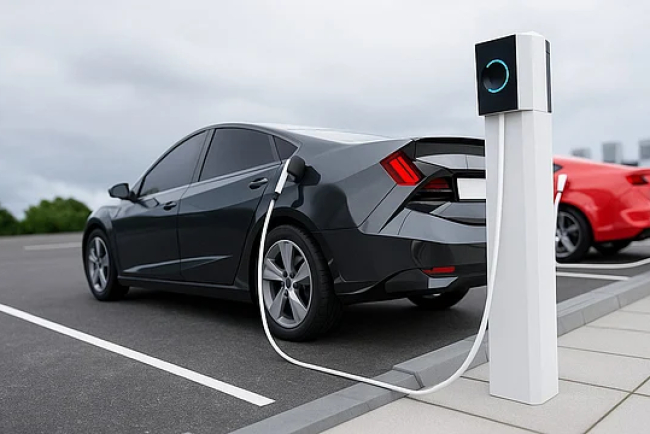Industry Calls on Government to Extend Renewable Power Transmission Fee Relief

Renewable Energy Companies Request Waiver of ISTS Till 2030
Renewable energy companies requested India's Ministry of New and Renewable Energy (MNRE) to waive inter-state transmission system (ISTS) charges till 2030. The expiring waiver on June 30, 2025, is considered pivotal in fostering investment in the sector and facilitating the energy transition process of India.
A meeting, chaired by MNRE Minister Pralhad Joshi, took place on February 5, and in the meeting, industry associations such as the Wind Independent Power Producers Association (WIPPA) sounded an alarm over the waiver's expiry.
ISTS Waiver's Role in Renewable Energy Growth
Currently, ISTS charges are exempted for 25 years for solar, wind, hybrid, battery energy storage, and pumped storage schemes commissioned up to June 30, 2025. The exemption translates into saving developers ₹0.40 to ₹1.80 per unit of transmission charges. The industry argues that if the exemption is not provided, renewable power would turn out to be more expensive than coal-based power, and thus electricity distribution companies (DISCOMs) would have to pay extra.
Unless the waiver period is extended, it would prompt the raising of tariffs, which would discourage procurement using renewable energy. A majority of Letters of Award (LOAs) may not be capable of being repurposed into Power Purchase Agreements (PPAs) when the waiver deadline lapses, resulting in non-started projects and developers uncertainty.
Industry players noted that although the cost of extending the waiver is low, the gain is highest. If extended, it would enable DISCOMs to implement outstanding PPAs for about 40 GW of capacity, which would result in savings of ₹0.60 to ₹0.90 per unit. This would also incentivize industries to use renewable power for decarbonization initiatives, as per India's 500 GW renewable energy goal.
Transmission Cost Issues
Statistics reveal that the total waiver charges (excluding waiver) are around ₹52,691 crore per year. The ISTS waiver has a share of only about 7% of the cost, i.e., ₹3,602 crore per year. With increasing power demand in India and transmission bottlenecks, the industry informs that a revival would have a marginal economic impact but would aid in the development of renewable energy.
India has transmission bottlenecks for balancing renewable power into the grid. Even though Madhya Pradesh is expected to have a surplus capacity, Rajasthan and Gujarat states are going to fall short of having capacity to accommodate more renewable projects. Hence, the states must coordinate their procurement strategies with resource adequacy paradigms for managing energy demand efficiently.
Government's Next Steps
For any possible expansion, top MNRE and Ministry of Power officials will soon sit together to determine the way forward. Talks are also underway to rectify delays in signing LOAs into PPAs. New regulations could make it mandatory for LOAs to be completed within a year to avoid project uncertainty.
While others recommend a phased reduction in the waiver of ISTS to manage cost sharing, fears are that any reduction would deter investment and result in lower PPAs. The government's choice on waiving the extension will be instrumental in deciding the rate of India's renewable power growth.
Source: MNRE, Industry Reports
What's Your Reaction?

















